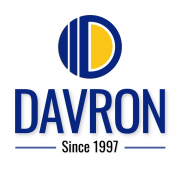If you find yourself editing and rewriting every detail of your executive resume, you may be overthinking the content and process of your resume.
Creating a compelling executive resume that meets modern standards and shares the details of your impactful career is no easy feat. Introspecting to evaluate your strengths and weaknesses, choosing which skill sets and achievements to highlight, and putting your value and experience into a two-page document can be daunting. But you don’t want to be so overwhelmed by the process that you end up not being able to create a file you can be proud of.
Parts of the resume writing process you may be overthinking
Job Requirements
It is important to recognize that no candidate will exactly match all of the qualifications listed in a job ad. Employers understand that each candidate brings unique skills, experience and perspective to the table.
While a strong match to the job requirements is important, it’s equally important to recognize that there will be a learning curve when taking on a new role. Aim for the right match, not the perfect match, and the confidence to perform in the role.
Skills and Qualifications
With the above in mind, your resume should include examples of job requirements. However, all you need is ‘Project’ Don’t add details that are not relevant to the reader. Focus your resume on each job. What skills are essential for that specific role? Have you demonstrated clear examples of success in your core skill areas? These are important.
Rather than simply listing general skills, consider including specific examples and accomplishments that demonstrate your abilities. For example, if the job requires advanced project management skills, highlight a successful project you led from conception to completion, detailing the specific outcomes and results you achieved.
Additionally, quantifying your accomplishments whenever possible can further strengthen your resume. Numbers and metrics provide concrete evidence of your capabilities and impact, such as improved efficiency, reduced costs, or increased revenue. For example, instead of stating that you improved customer satisfaction, you could specify that you increased customer satisfaction ratings by 20% within six months.
Give a few comprehensive, strong, specific examples of your relevant competencies and you’re done. Less is more when it comes to your resume.
Employment gap
Did you take time off to care for children, travel, or try a new business opportunity? Maybe you were laid off. Don’t stress about the gap. Instead, consider whether it makes sense to give a short explanation to satisfy a curious reader. When describing your employment gap, be concise and focus on the positive aspects of your experience. Avoid dwelling on the reasons for the gap and emphasize what you may have gained during it.
Gaps in employment are normal, so don’t stress these periods in your resume – if you do mention them, keep them brief.
Templates and layouts
There’s no right way to design your resume. When in doubt, choose a clean design with an easy-to-read font and ample white space. Readability is key.
When organizing your resume, prioritize the most relevant and important information, such as work experience, skills, and education. Use a clear, logical structure and organize sections to make it easy for readers to find the information they need. Use shading or bolding to highlight important sections and content.
You can consider the aesthetics of your resume and how it reflects your personal brand, but be careful not to sacrifice readability and professionalism for creativity. It’s important to maintain a professional look with quality content. Many resume templates you’ll find online look nice, but a flashy resume doesn’t necessarily make a good one. Content is key in a resume. Don’t get too carried away with the design.
Check out these resume samples for ideas on resume layout.
Writing Skills
At some point, you have to stop editing. Keep reading the resume. everytime Find something to change. While it’s important to have a polished and error-free document, there comes a time when you have to stop editing and trust the strength of your content. Endless revisions will lead to diminishing returns and can make you lose confidence in your abilities.
Hire a third-party proofreader or a friend, or run your file through Grammarly. And that’s it. Give it your best shot, make any necessary adjustments, and move forward with confidence, trusting in the quality of your resume.
Submission Deadline
Don’t rush it: it’s better to take your time and customize your resume for the job than to rush and submit it the first time.
While it may be tempting to rush through the resume writing process, customizing your resume to the job is worth the effort. A strong, targeted resume will make you relevant, highlight your fit for the role, help you stand out from your competition, and boost your confidence as a candidate. Take it slow. You may only have one chance to get the job, so make it count.
Finally, always have your resume prepared so you don’t have to rush in the first place. That’s right, don’t wait until the perfect job comes along. Create your executive resume in advance, when you have the time and space. That way, you’ll only have to make small tweaks (customizations) for each application.
Should I apply?
When in doubt, ask if you are qualified for the job and can back up your claims with evidence. If you meet the core competencies and are confident you can do the job, then by all means, apply.
Embracing new challenges, demonstrating confidence and positivity, and seizing opportunities for growth will lead to valuable learning experiences, personal growth, and professional advancement. Believe in yourself and craft your resume with purpose and confidence. Remember, you are the only one in the driver’s seat of your career. If you don’t sell yourself, who will?
How to stop over-analyzing the content of your executive resume


Take a step back and take a break
Every now and then you need to take some time away from your files to clear your mind. If your resume is getting out of hand, step away for a bit. Come back with a fresh mind.
Ask for feedback
Ask people whose opinions you respect. Being very close to things can make it hard to see the big picture, but an outside perspective can point out exactly what you’re missing. Everyone reads a resume differently, so make sure your feedback is only coming from trusted sources.
Consider consulting a professional
Professional resume writers see and create hundreds of resumes every year. They know what works and what doesn’t, and can work with you to create a modern, effective file. Look for a writer who is experienced and has a collaborative process.
Understand your audience’s mindset
Thinking like a potential employer will help you target your resume to each specific job. What problems do they have that you can solve? What qualifications are essential for this particular position? Aim to address their pain points.
Build your brand
What is the overall message you want to convey? For example, are you an effective leader who builds high-performing teams? Or are you a problem solver who is constantly looking to improve efficiencies and innovate new procedures? Be prepared to share examples of your successes in these areas. It’s essential to track your career accomplishments over time so you can easily add them to your resume. 75 Days of Achievement Diary in order to help.
Pay attention to your thoughts and self-talk
It can be hard to maintain a positive attitude during your job search. It’s easy to overthink and let negative thoughts creep in. Resist the negative self-talk and consciously reframe your thoughts to a more positive perspective. Yes, you are qualified for a challenging job that you enjoy. Yes, you can create a great resume.
See the whole picture
A resume alone will not get you a job. A successful job search requires many other elements. Make sure you allocate enough time for different search activities. Diversify your actions and do not make your resume the center of your search.
Recognize that you can’t control everything
Overanalysis is often rooted in perfectionism, which Perfectionism ParalysisPerfection doesn’t exist, so do your best and then step back and let things unfold. Focus on what you can control (your actions, your emotions) and not what you can’t control (your employer choices or choices).
To some extent, overthinking the process of writing your executive resume is expected and okay — it’s one of the most important documents you’ll create for your career. But if you find yourself overthinking every detail, take a step back, ask for help, and be confident that your leadership abilities and value will shine through.
If you are looking for a second opinion, please contact me. I would love to learn more about the executive position you are seeking and how I can help you.







